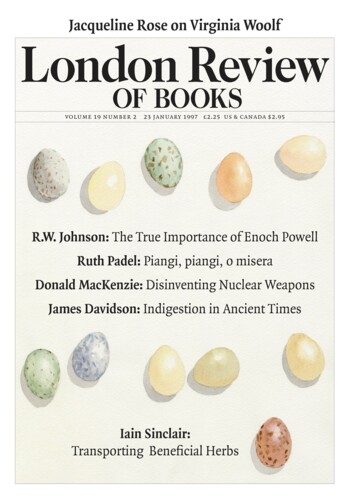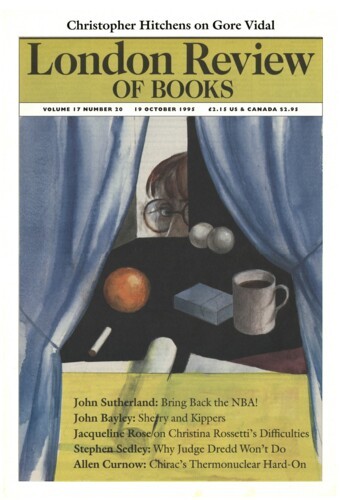One of the problems for right-wing promoters of ideal family life is that there is no way of predicting its outcome. It is as if those who confidently assert that absent fathers spell delinquency for the children, inadequate mothers addiction, divorce an incapacity to hold onto relationships or to love in a sustained way, never stop to ask why it is that the most stable and long-lasting of family unions can produce offspring who run wild, turn to drugs, contract out of loving, who seem, often perversely and inexplicably, to be committed to the most extreme forms of gratifying and/or punishing themselves. The union of Frances Polidori and Gabriele Rossetti, parents to Maria, William, Gabriel and Christina Rossetti, was by all accounts harmonious, affectionate, enduring. Eccentric, not without drama (he was a poet and revolutionary in exile from Italy), it nonetheless offered in terms of devotion, engagement and cultural stimulation a model that might still pass today as a middle-class ideal of what the family should give a child. And yet of the four children, only William was able to enter, let alone sustain, an attachment even vaguely resembling that of his parents. Maria became a nun, Gabriel the painter and poet descended, after the suicide of his wife, into drugs and breakdown, Christina the poetess lived as an ascetic, her religious devotion powerless to assuage the self-loathing which seems to have dominated so much of her adult life. (According to more than one account, she died raving at her own perdition.) ‘Why, one wonders,’ as Jan Marsh puts it, ‘did the four siblings have such difficulties when their parents’ marriage was so happy?’ And on the diametrically opposed nature of Maria and Christina’s religious experience (respectively utmost contentment and utmost pain): ‘Why two sisters, growing up in the same environment, should respond so differently to the same religious influences is a question not easily answered.’ This is a biography which often has recourse to such questions, and it is at its best, as in these examples, when it is least certain about the answer.
Christina Rossetti: A Literary Biography by Jan Marsh. One of the problems for right-wing promoters of ideal family life is that there is no way of predicting its outcome. It is as if those who confidently assert that absent fathers spell delinquency...



